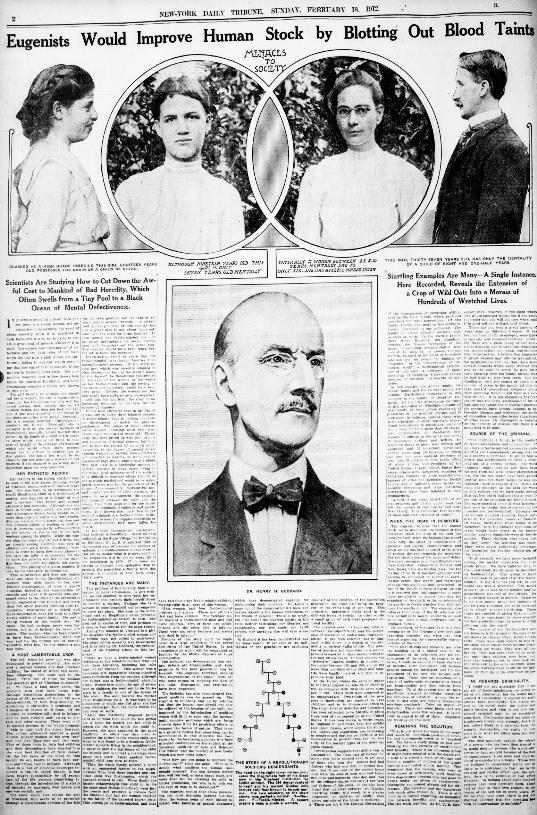The Eugenics movement in the early 20th century United States, a pseudo-scientific amalgamation of social Darwinist philosophy and animal breeding management, gained widespread approval across the country and influenced many internationally, most notably in the the Nazi racial policies of the era leading up to World War II. This primary source set includes newspaper articles, photographs, cartoons, notes on legal cases, a video interview with a man sterilized without consent when he was a boy, a radio report on non-consensual sterilizations of women as recently as 2017, a letter from former president T. Roosevelt, and other documentation, providing a rich resource of teaching materials. The brief introduction sketches the context in which the Eugenics movement arose, and also provides links to secondary sources and lesson plan examples. Examination of primary sources from the time period enables students of history to analyze, evaluate, and reflect on this movement and its roots. Students may see the connection with 19th century efforts to improve society and cure social ills of the age, and 21st century concerns about the risks and benefits of laboratory intervention in human genetic material to improve human health. Download PDF, or see this and other materials in the Emerging America Teacher Resources.
Published on Fri, 02/08/2019

Categories:



